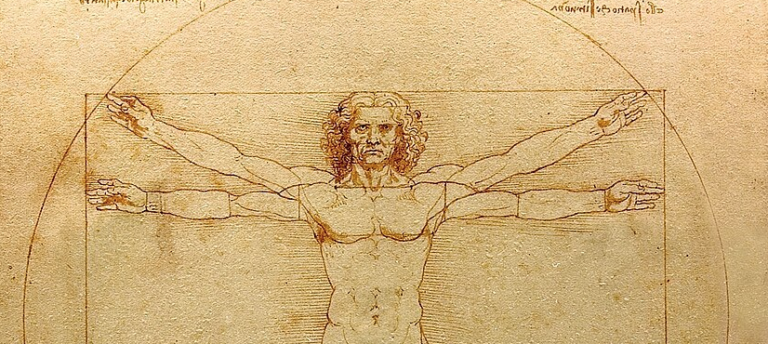A few years ago I answered the question in the title of this article in the negative:
It seems to me that human progress is very uneven:
Technology: Very rapid progress
Science: rapid progressPublic morality: slow progress
Sports: slow progressHuman personalities: no progress
Art: no progress
Now I wonder if this judgment was not too hasty. Perhaps I had thought about the question wrongly. In this article, I suggest that I was confusing stocks and flows, and that this distorts my view of relative progress in these two areas.
To be clear, I understand the argument that science seems much more progressive than art. Science has advanced enormously in recent centuries, with many of the most renowned artists in music, painting, poetry, and theater working hundreds of years ago.
But now I wonder if this is some sort of “apples and oranges” comparison. It seems to me that a domain can be judged either by its action of achievements, or its to flow of creativity. Thinking back to my previous article, I believe I was comparing the stock of scientific knowledge to the flow of artistic creativity. Let’s reverse these criteria, using physics as a substitute for science. What happened to the stock of artistic achievement and what happened to the flow of scientific creativity?
During the first 30 years of the 20th century, physicists discovered the structure of the atom. They developed the theory of quantum mechanics. They developed special and general relativity. There have undoubtedly been many other discoveries, but these are among the most important. Fields of applied physics such as astronomy have also seen important discoveries, including the structure of stars, the existence of galaxies and the expansion of the universe.
Unless I’m mistaken, the last 30 years have not seen discoveries of this magnitude, although progress continues to occur in many areas. Nevertheless, from a “creativity flow” perspective, one could argue that physics is in decline and that the greatest achievements took place many years ago. Who is today’s Einstein?
Let us now consider artistic knowledge from the point of view of “stock”. I would say that the art world is way ahead of where it was 100 years ago, and way ahead of where it was 200 years ago. This progress has taken several forms:
1. New artists continually appear on the scene, enriching our stock of artistic creations. A painting like Picasso’s Guernica didn’t exist 100 years ago. Going back 200 years, entire styles such as Impressionism and Post-Impressionism did not exist.
2. Our understanding of the field of art has improved compared to what it was in past centuries. By the mid-1800s, Vermeer’s paintings existed and were not entirely unknown to art connoisseurs. And yet, most art experts lacked the capacity to appreciate its greatness. Today, even people with just an undergraduate degree in art history can appreciate Vermeer. Many other examples could be cited, especially as we move forward in time toward the present. Thus, in 1890, Vermeer had been “discovered” and yet Van Gogh remained unknown.
Goethe was one of the supreme minds of the early 19th century. In his book entitled Italian trip, it shows what a superbly educated European might have known about painting in 1816. And yet, I suspect that I know even more about painting than Goethe. This is not because I have a better mind, but rather because I stand on the shoulders of giants, observing a field of knowledge that has grown significantly over the past 200 years. By analogy, a sophomore majoring in physics might well know more about physics than Isaac Newton.
So why this perception that art is regressing while science is progressing? I see several possible reasons:
1. A lot of abstract art and atonal music makes no sense to most people. But it is also true that quantum mechanics and relativity make no sense to most people. Given enough time and progress, any field of human endeavor will advance beyond the comprehension of most people.
2. But people are willing to accept models like quantum mechanics and relativity when they are told that these models are the basis of the technology that leads to things like lasers or iPhones. This is why science is more respected than art. But the fact that people which does not include either domain Accepting either as a matter of faith is hardly a good argument for claiming that science is more progressive than art.
3. People apply double standards. They judge art based on flow: how does the flow of good new art compare to the flow of good new art from previous eras? In science, they are interested in the accumulated stock of knowledge, which is generally increasing. This is a double standard, favoring science.
In my opinion, most traditional fields of art and science are well past their “golden age.” Rapid progress tends to occur when new techniques open up possibilities for creativity—the knowledge equivalent of the Oklahoma land grab, when people rushed to take suddenly available land. In science, techniques such as genome deciphering have recently made great strides in our understanding of how and where ancient people migrated. Scientific fields lacking new techniques tend to eventually stagnate. In the field of art, painting has stagnated and cinema has become the most dynamic visual art of the last 100 years.
In my own field (macroeconomics), things seem to have gone backwards over the past few decades. Fewer economists seem to understand that low interest rates don’t mean easy money. Fewer economists seem to understand that fiscal stimulus is largely ineffective because of monetary compensation. Fewer economists seem to understand that the Fed determines the long-term inflation rate. Fewer economists seem to understand that trade barriers don’t improve the economy. The macroeconomic situation is in decline, both in terms of stocks and flows.


